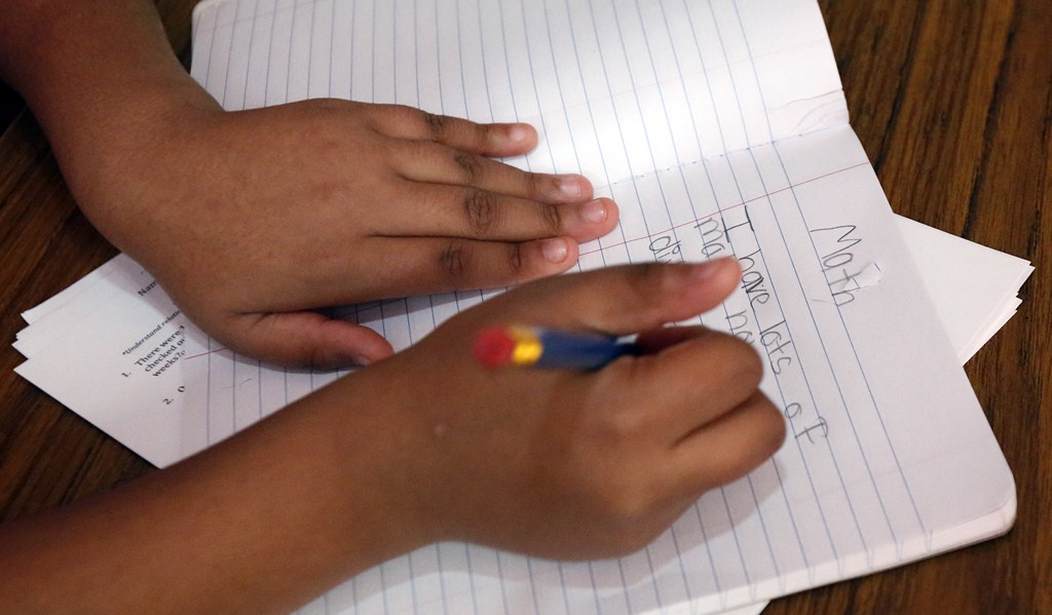Last October, Rebecca Stolzberg was indicted on three felony and misdemeanor charges. Stolzberg, a finance administrator in Yavapai County, Arizona, created false invoices and spent nearly $20,000 of education funds meant for students on food and gift cards.
Stolzberg’s theft is unfortunately not an isolated incident. The Arizona auditor general reports that over the last 15 years, Arizona school personnel have embezzled, stolen, or otherwise misused more than $25 million in education funding.
Nearly all of this money—99.5 percent—was taken by school administrators, such as office managers and assistants, not classroom teachers.
Nationwide, the figures are similar. Lydia G. Segal writes in Battling Corruption in America’s Public Schools, “The highest incidence of corruption occurs among central, district, and school non-instructional personnel.”
In Los Angeles, for example, Segal found that in one year, “school-based” fraud and waste came to $48,000, while fraud and waste from central offices totaled $21.6 million. Segal explains that after a rash of high-profile scams in the L.A., Chicago, and New York City public school systems in the 1990s, state leaders created independent investigative and auditing agencies to keep watch.
Earlier this year, the Chicago inspector general found that some school principals had been reporting false information about their own children in order to qualify for the free and reduced-price lunch program. The inspector reports that this is a recurring problem. Chicago officials also uncovered a case where administrators inflated enrollment numbers in order to boost the school budget and fund a position with a salary of $105,000 per year. The office staff even gave the “ghost” students grades for phantom classwork.
Recommended
Other school systems have similar investigative offices. The investigators make it more difficult for thieves to hide, though fraud persists.
One Arizona public school bookstore manager falsified 323 documents to conceal her crime. The Detroit inspector general uncovered that a district employee and a contractor set up a fake company and billed the district for more than $500,000.
These crimes take resources away from the classroom and create distrust of the public school system. Fixing the problem will take more than just auditors, however. School leaders must have a strong incentive not to lose parents’ trust because of fraud. When students leave a public school, their funding follows, and parents have more choices today than just the neighborhood school their child is assigned to.
Charter schools, for example, are the fastest growing segment of the public school system. The National Alliance for Public Charter Schools reports that charter school enrollment around the country has grown by 80 percent in the last five years, while traditional school enrollment is flat by comparison. When parents can easily take their portion of funding to a new school, school administrators have to take performance and efficient use of money seriously.
Other options also encourage wise use of funds while discouraging fraud and theft. School vouchers and private school scholarships have helped parents in places like Milwaukee, Wisconsin and Ohio take their money to the most effective schools for many years.
Today, however, parents in Florida and Arizona have even more flexibility through education savings accounts they can use to pay for online classes, personal tutors, private school tuition, or even save for college. These accounts help to limit fraud by enabling parents to immediately move students – and their funding – out of schools that misuse funds or fail to challenge students.
Parents report their expenses directly to the state department of education or designated office, cutting out the administrative middle men that beleaguer public school districts. The state can withhold funds if fraud is discovered.
There is no foolproof solution for preventing fraud, but the current spending structure in the public school system has too many loopholes. Parents and their children should have more choices between learning opportunities that meet a child’s needs, and with these options, parents can make sure money is used to help their children succeed

























Join the conversation as a VIP Member